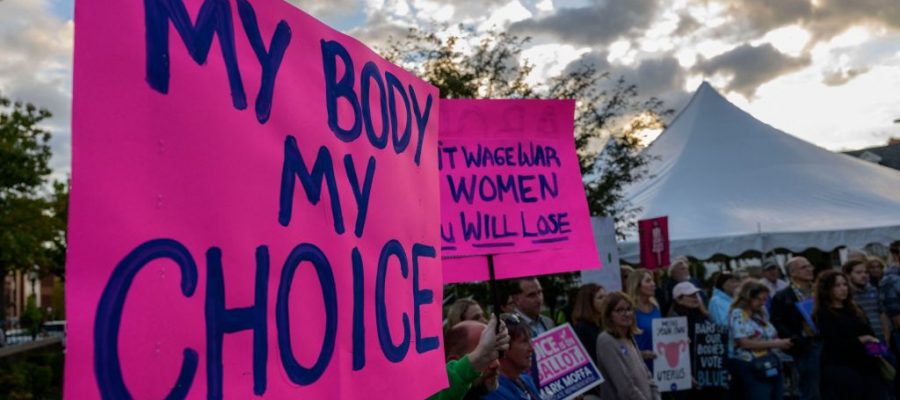Reproductive justice advocates have been concerned about abortion-access deserts, or large swaths of the country where abortions are illegal, since it first became apparent that the constitutional right to this medical care was in jeopardy. A new study is putting numbers to this dangerous phenomenon.
According to a recent report published in the Journal of the American Medical Association (JAMA), one in three (33.3 percent) of American women of reproductive age now have to travel “more than 60 minutes” to reach their nearest abortion provider. For context: Prior to the shocking reversal of Roe v. Wade earlier this year, just 14.6 percent of women lived that far away from a clinic. The mean travel time used to be less than 30 minutes; now, it’s about 1 hour and 40 minutes.
Researchers came to this conclusion by conducting a “cross-sectional spatial analysis” of 749 abortion providers nationwide and census data from nearly 64 million women ages 15–44 in the continental United States. Per their findings, travel time to abortion facilities is “significantly greater” now that state lawmakers have the power to implement anti-abortion laws.
“Abortion facility closures resulted in a substantial decrease in access to abortion care in the U.S.,” the team wrote. They also noted that Native American, Black, and Hispanic women experienced “large absolute increases in travel time to abortion facilities.” Historically, these groups face larger pregnancy-related mortality rates than white women.
Abortion-access deserts aren’t just inconvenient. For some pregnant people — especially those who are low-income, work jobs without sick leave or paid time off, or don’t have reliable access to car — traveling more than an hour away to obtain healthcare might not be possible.
“Females who were more likely to have lower incomes and be uninsured continued to have low access to abortion facilities based on this model’s estimates,” researchers from the JAMA study added. “Accessing an abortion facility may be prohibitive for those without the resources to travel.”
Roe v. Wade, the landmark Supreme Court ruling that guaranteed abortion access nationwide for more than 40 years, was struck down in June. Since then, at least 13 states have outlawed abortions, according to The New York Times. Abortions are safe, common, and nothing to be ashamed of, but attacks on reproductive justice from the religious right continue to stigmatize the procedure.
With the 2022 midterm elections looming large, abortion access has become a wedge issue on the state and federal levels. President Joe Biden promised last month that he would push abortion rights into law if Democrats elect more senators and maintain control of the House. To make your voice heard, be sure to cast your ballot on or before next Tuesday, November 8.
Before you go, check out these true celebrity abortion stories:

Source: Read Full Article

